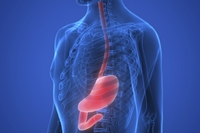In the same section
- Accueil
- EN
- Research
- Research projects
- Fédération Wallonie-Bruxelles
- "Actions de recherche concertées" (ARC)
-
Share this page
Research project "Foregut Cancer" (ARC program)
Characterization of Foregut Cancer Initiation and Development

Esophageal carcinomas (EsC) is currently the eighth most frequent cancer in the world, with approximately 450,000 new cancer cases annually worldwide. Due to its aggressive nature, this cancer is associated to a poor survival rate: only 5%-15% at five years. Barrett’s syndrome is considered as a precancerous lesion that increases by around 50 times the risk of esophageal adenocarcinomas (the most prevalent form of esophageal cancer in western countries).
To effectively reduce the mortality rate in these patients, we need to better understand the molecular mechanisms underlying the development of these deadly diseases. Led by Benjamin Beck (IRIBHM), this research project aims to analyse adenocarcinoma development in mice, using transcriptional and epigenetic profiling. Validation will then be proceed on human samples and cell lines. Researchers will also try to develop in vitro and in vivo knock-down models to identify molecular components that play a key role in cancer initiation.
Those works are necessary to develop novel approaches for early diagnosis, treatment, and prevention of esophageal cancer.
Spokesperson
BECK Benjamin
IRIBHM, Faculty of Medicine
ULB-Cancer Research Center (U-CRC)
